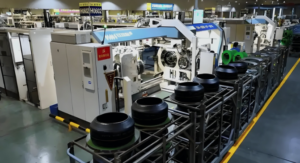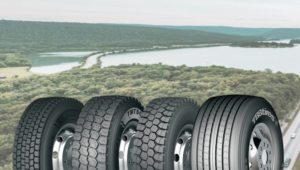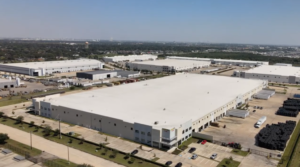Since 2014, many countries have initiated policies to boycott Chinese tires, prompting manufacturers to establish tire factories in Thailand. The country has emerged as a key location for tire production due to its abundant rubber resources and strategic logistics, with the industry expected to grow at a rate of 5.2%. Prominent tire factories in Thailand, including Zhongce, Linglong, Prinx Chengshan, Sentury, Double Coin, and Frico, produce a variety of tire types for both domestic and international markets. Overall, these developments highlight Thailand’s strategic advantages, making it an attractive destination for Chinese tire companies and enhancing their global competitiveness.
I. Introduce
Since 2014 onwards, there are many countries who started to initiate actions to boycott and implement policy against Chinese tires. Among most of the largest countries like USA, Europe and Southeast Asia have started to impose tariffs and more taxes on Chinese tires, these Chinese tires companies rush towards building their own factories in other countries in order to counter this boycott. Among the most established plants is Thailand, and several tire companies such as Zhongce Rubber Tire Factory, Linglong Tire Factory, Sentury Tire Factory, and Double Coin Tire Factory have their own tire bases in Thailand.
This article explores the latest developments and trends shaping tire factory in Thailand.

II. Industry Growth and Strategic Investments
Thailand is benefiting by enjoying his status as the global second-largest producer of natural rubber. The nation’s tire industry is projected to expand at a compound annual growth rate (CAGR) of 5.2%, with production expected to reach 96.31 million units by 2033.
A prominent development is biggest tire company Michelin Tire $300 million investment to expand its tire manufacturing facility in Rayong. These kind of developments will increase its annual production capacity to 7.8 million units and create 600 new jobs, it shows the Thailand’s strategic importance in the world tire supply chain.

III. Advancements in Technologies and Sustainability New Initiatives
Thailand tire manufacturer are going to adopt more advanced technologies to increase production efficiency and product quality. The usage of smart production techniques, including automation and artificial intelligence is consistently improving and trying to reduce costs.
In Addition, by following advancements in tire design are leading towards the products which have lower rolling resistance who contributes to improve vehicle fuel consumption and reduced carbon footprints.
IV. Key Tire Factory in Thailand
Zhongce Rubber Tire Factory in Thailand
Zhongce Rubber tire factory in thailand is the company’s first overseas production base, launched in 2015. It has an annual production capacity of 20 million tires and is one of the most profitable Chinese tire companies in Thailand, as well as the most profitable subsidiary within Zhongce. Its thai tyre not only sell well in Southeast Asia but also reach markets in Europe and America, effectively navigating trade barriers in those regions.

Linglong Tire Factory in Thailand
Linglong Tire Thailand factory began production in 2014, achieving an annual capacity of 17.2 million units, including 15 million semi-steel tires and 2.2 million full-steel tires. As Linglong’s first overseas production base, its products have performed strongly in international markets, capturing nearly 24% of the market share for new energy vehicle tires in 2023, making it the leading Chinese tire brand. In the first half of 2024, Linglong’s gross margin from exports and overseas sales was 20.87%, with nearly all contributions coming from Thailand.
Prinx Chengshan Tire Factory in Thailand
Prinx Chengshan Thailand factory began construction on March 31, 2019, and the first full-steel radial tire rolled off the production line on March 25, 2020. The project plans to invest $300 million and is designed to produce 4 million passenger car tires and 800,000 truck and bus tires annually. Production capacity is steadily increasing, and the company expects to surpass 10 billion yuan in revenue in 2024, reaching 10.97 billion yuan, a year-on-year growth of 10.3%.

Sentury Tire Factory in Thailand
Sentury Thailand Tyre factory produced its first tire in 2015 and began full-scale production in 2016. It has since become one of the company’s core profit engines. After the completion of the second phase of the project, the annual capacity will increase to 16 million semi-steel tires and 2 million full-steel tires. By 2024, the factory’s annual production capacity has reached 12 million high-performance semi-steel radial tires.
Double Coin Tire Factory in Thailand
Double Coin Thailand Tyre Factory began production in 2017 and was established as a joint venture between Shanghai Huayi Group and Thailand’s Tribeca Enterprises Co., Ltd. The factory is designed with an annual capacity of 1.8 million truck and bus tires and 50,000 construction tires. It has now reached a significant scale, helping Double Coin establish a foothold in the North American truck and bus tire market.
Frico Tire Factory in Thailand

Frico Tires, a prominent Thai brand, is recognized for its focus on innovation in tire manufacturing. The company established its production facility in Thailand to take advantage of the country’s abundant rubber resources and efficient transportation networks. Frico’s product range includes TBR tyre and passenger car tires, as well as wear-resistant, wet, and low-noise options. These products have garnered popularity in the domestic market and are making strides internationally, solidifying Frico Tires’ position in the global tire industry.
V. Conclusion
Overall, Thailand has emerged as a prime investment destination for Chinese tire companies, with many manufacturers experiencing significant growth after establishing operations in the country. These companies not only capitalize on Thailand’s abundant resources but also effectively navigate trade barriers, enhancing their international brand presence. This trend underscores Thailand’s strategic importance in the global tire industry.



